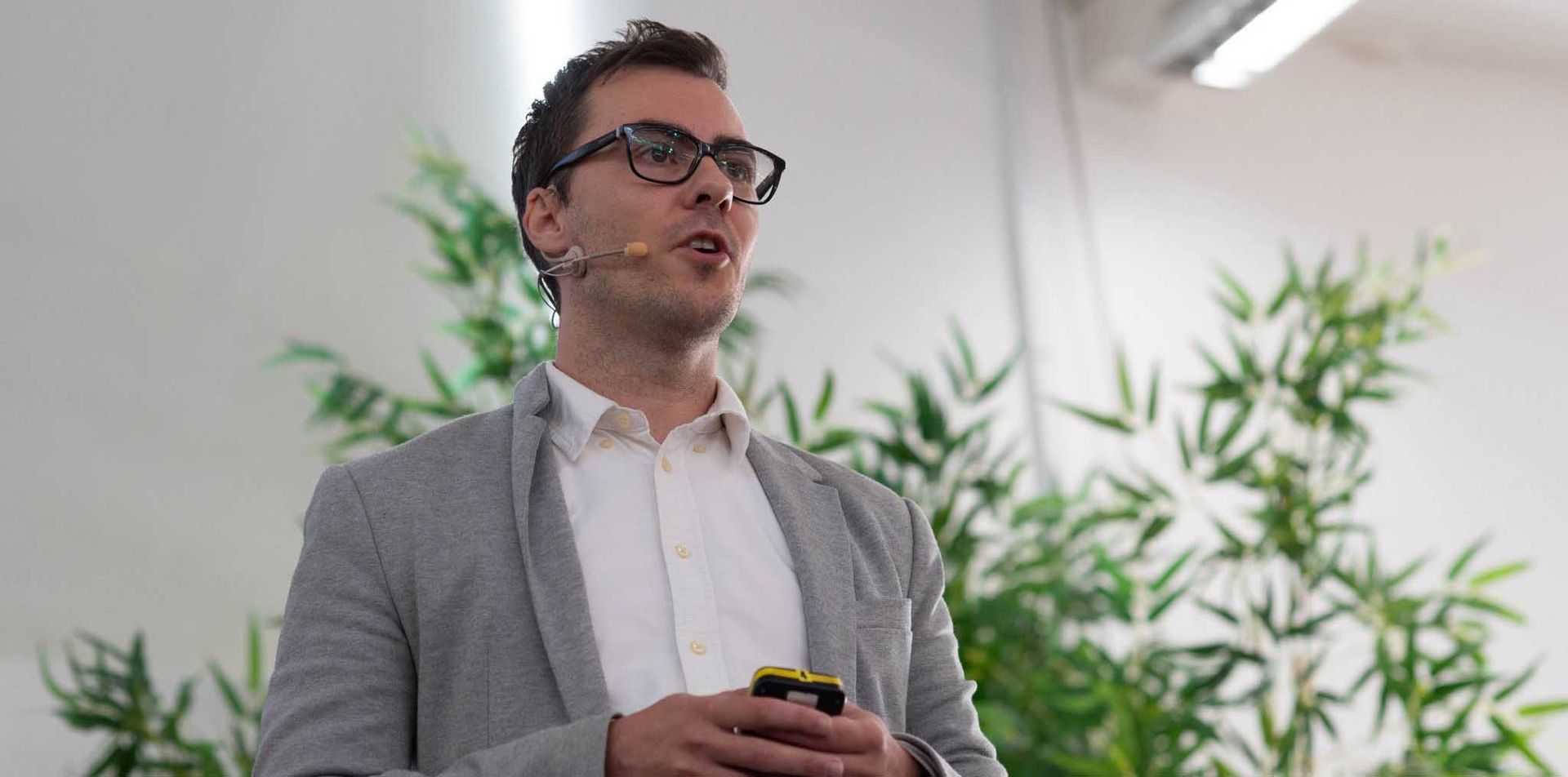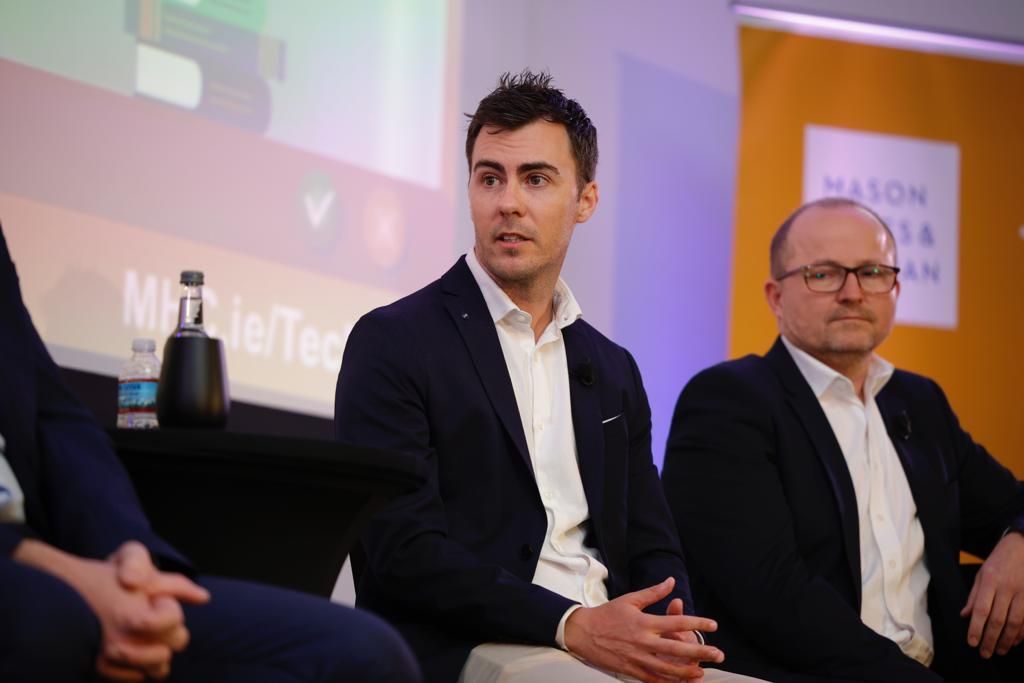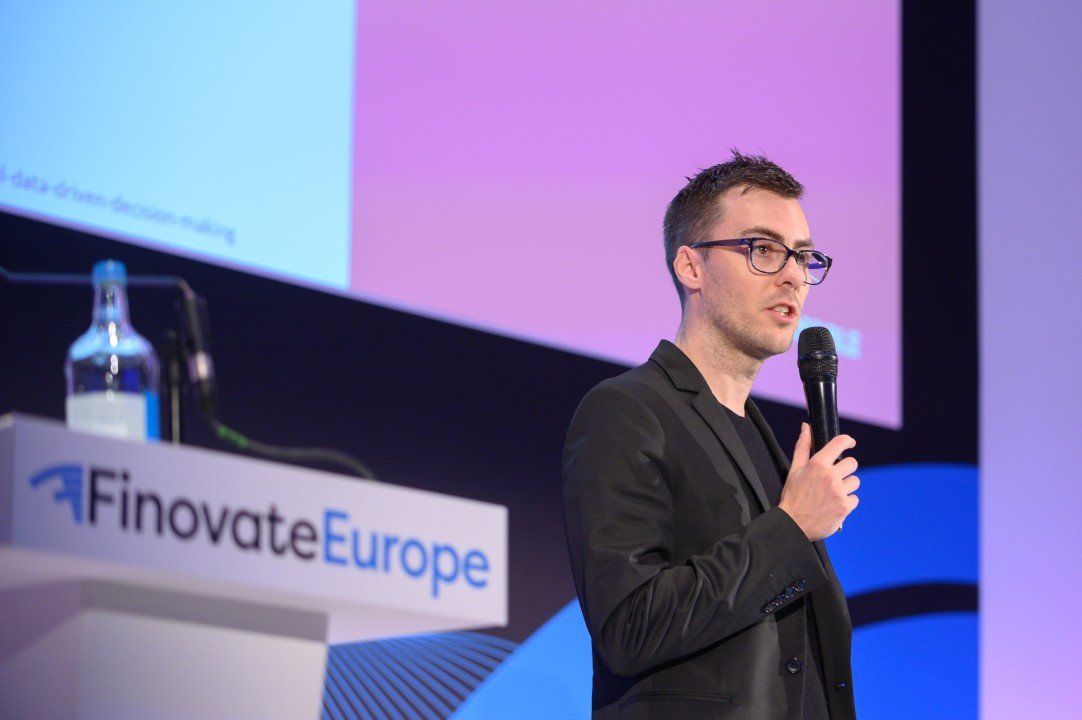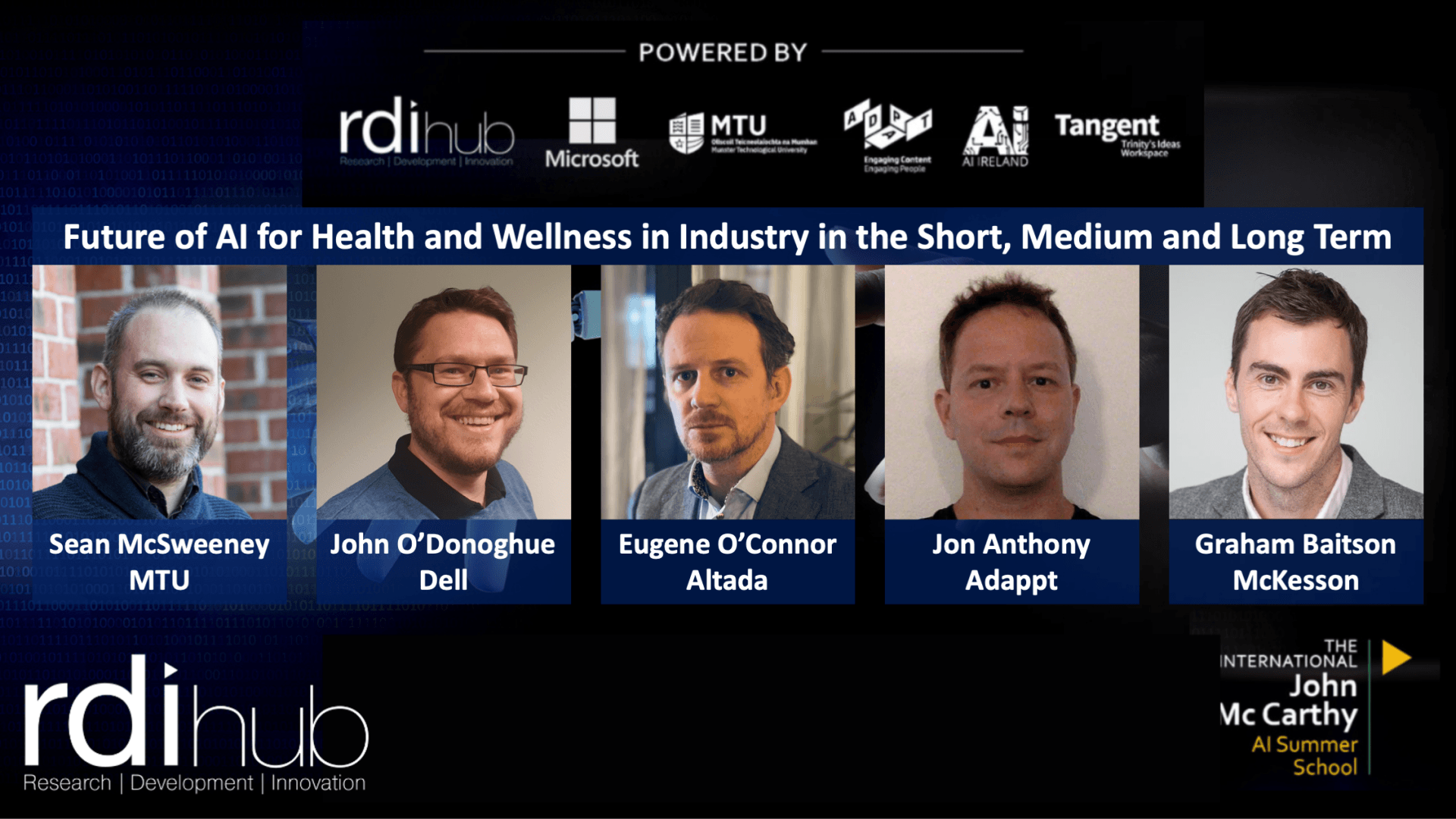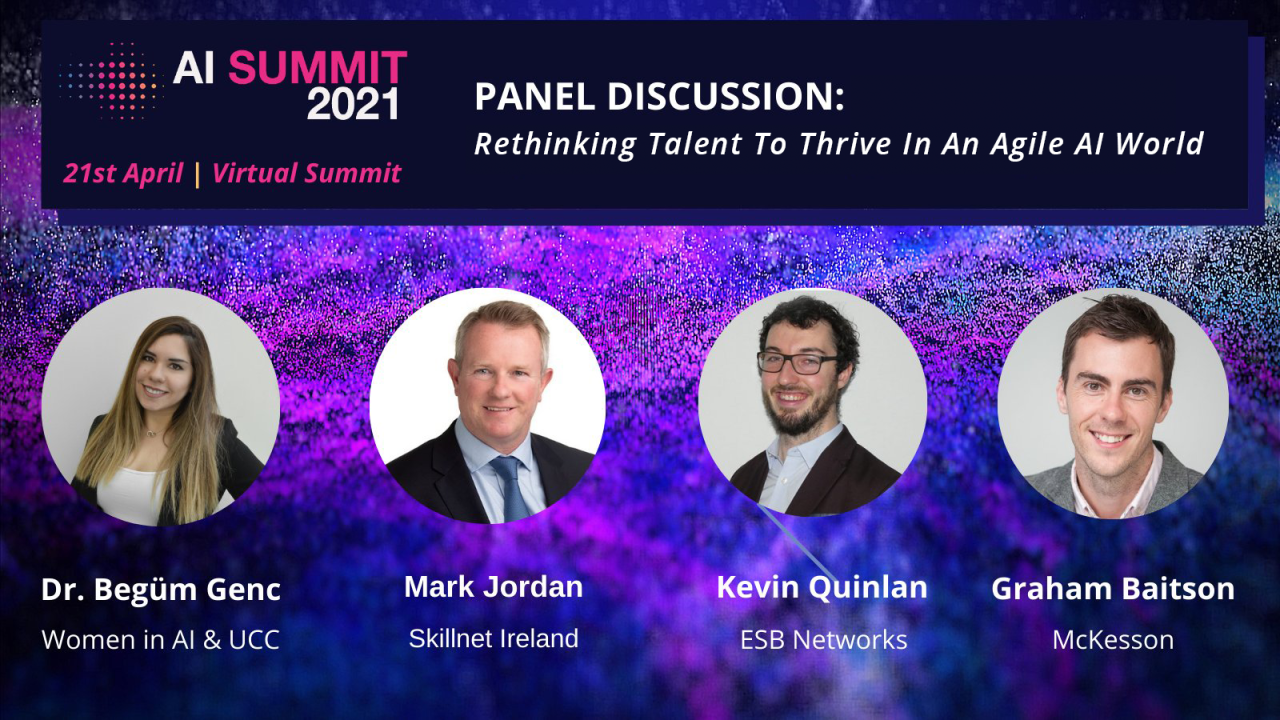Evolving AI’s Availability to Transform our Future
6 Minute Read - At our recent AI Possible Summit, I got the opportunity to moderate a panel on emerging technology. I was joined by some amazing people to discuss how to increase AI's availability and how it's being applied to different industries. The following is an overview of this panel. All thoughts and comments are my own.
Introduction
One of the reasons why I love working in technology is that I get a chance to meet and discuss lots of interesting topics with some fascinating people. Recently during Altada's inaugural AI Possible Summit in Miami, the purpose of which was to unearth new opportunities around AI and explore how having a diversity of talent results in a positive impact for businesses, I got an opportunity to moderate the keynote AI and Emerging Technologies panel discussing topics around software development, data science, data ethics, privacy and security, performance modelling, along with the future impact of how AI is being applied within media, entertainment, NFTs, the Metaverse, and more.
Development Lifecycle / AI Deployment
When considering the development of AI, people often think of a data science team creating algorithms. While this is true, there are a number of additional and supporting services required to transform that AI algorithm into a commercial product. Sarah O’Connell, Head of Software Engineering at Altada, gave an overview of how teams such as software development, cloud platform, emerging technology, UI/UX, and technical delivery, need to collaborate together to augment the data science elements when creating end-to-end world class solutions capable of scaling and providing value.
When considering the integration between each of these functional areas, it’s important to consider the role that data plays and how to ensure that data is kept secure and handled ethically, a topic that I have previously discussed in my article “The Rise of Ethics in Artificial Intelligence (Part 3: Trustworthy AI)”. Mark Woolnough, Senior Portfolio Solution Architect at Nordcloud, gave a really detailed outline on the importance of having a data strategy that focuses on data ethics, security, software architecture, and containerisation for accelerating deployment of AI.
One of the challenges surrounding the deployment of AI applications is that many people think the AI lifecycle stops at the deployment stage. Hakim Elakhrass, CEO & Co-Founder of NannyML, discussed how NannyML are combatting the issues that arise during the quick performance deterioration on AI models and the impact that this has on business metrics. One interesting concept here is the definition around AI performance. Is it based on technical metrics, on business impact, or even possibly both, and how the relationship between these change over time due to the dynamic systems. An example of this can be seen when Zillow, leading real estate marketplace, systematically overpriced 7000 houses by $300 million due to lack of machine learning performance monitoring (The Guardian, 2021).
Kevin Sharpley, COO & Co-Founder of Xavatar, discussed how being data-driven and having an understanding of how to use that data, a topic that I have also discussed in my recent article “Using AI to Unlock the Value of your Data - Managing Non-Performing Loans (NPLs)”, allows companies to capture the market share, retain their current users, and also attract new users to your product.
Support & Collaboration
You would have heard the proverb “It takes a village”. When used within a business context, it means that there is a better chance of success and enhanced value when working within a collaborative environment, which is evident from recent studies that show the average return on collaboration is four times the initial investment (Forbes, 2012). Kevin shared his experience of working with Altada during our Alsessor AI Accelerator, the final of which took place this week, emphasising that it has allowed them to look at AI in a holistic way.
Having strong support and collaboration networks enhance the creation of meaningful and valuable products. Mark discussed how having the right combination of people with technical expertise and industry/domain expertise will result in breaking down barriers, having a better understanding of data, and becoming more productive when creating technical solutions.
Since 1975, the most important asset for organisations have gradually flipped from 83% being physical assets, to now 84% being human capital (PCMA, 2021). Hakim said that not only is the most important thing to do when growing an organisation is finding the right people, but also enabling them with a good culture to allow them to thrive and do their best work.
“A very important question that you should ask yourself is what type of organization do you want to build” – Hakim Elakhrass, CEO & Co-Founder of NannyML
But finding these right people can prove to be a difficult process, with 82% of companies believing they are unable to attract the correct talent (McKinsey, 2017). In my recent article “Rethinking Talent to Thrive In An Agile AI World”, I highlighted some ways in which AI is impacting the talent market. Adding to this, Sarah also discussed how best to leverage the ecosystem to support the talent pipeline by forming partnerships to bring innovation into the product workflow and also addressing the skills gap through university engagements.
Future and Beyond
With the pace of new advancements within emerging technologies, it’s unrealistic to expect everyone to be an expert across multiple domains. So how do we ensure that companies stay ahead of the curve and keep abreast of the market direction? Sarah brought up the topic of creating micro-teams to focus on specific emerging areas with the intention to create reusable components, through micro-services and API first approach, that can be utilised across the business without everyone requiring the deep knowledge or expertise.
Companies who understand how to apply these approach and base decisions on metrics and data, will reap the beneficial rewards. But will companies start to automate actions and direction based on these data points? Hakim introduced the term of ‘hedge-fundification’ outlining that as more companies start to utilise machine learning to make critical conditions, they will start to operate more like a hedge fund. But the challenge around this is that hedge funds operate understanding and preparing a strong risk culture and risk management, so therefore it’s imperative for traditional enterprises to understand this risk and possible dramatic effects due to making these more analytical decisions on the output of models.
But how available is AI to enable companies to obtain the maximum benefit? We have seen the evolution of technology from the first computer being “50 foot long, weighing give tons, and consisting of 750,000 separate parts” (Britannica, 2001), to know being able to fit supercomputers in our pocket. Mark outlined how that evolution is continuing with manufacturers now releasing their products with on-chip AI models that can at completely replace, but at minimum augment and support, human decisions and processes, enabling real-time and proactive monitoring..
Final Thoughts
As these technology and manufacturing advancements become more mainstream, the ability to take advantage of their capabilities will result in a creating a wave of new innovations and opportunities. The evolution from narrow AI (more focused) to broad AI (wider reach and increased capabilities) to general AI (off the shelf solutions that can be applied to solve many challenges) has enabled the brightest minds to come together and create products and services that are changing the world and how we live. As we move into the unknown in terms of potential, the transparency and explainability of how these systems interact and make decisions will need to be at the forefront of development. The advancements in areas such as quantum, will create the computing ability for these products to run analysis, predictions, and make decisions in real-time. Relationships between human and machine interaction will be absorbed and immersed into interactive, virtual, and augmented environments like the Metaverse and Xataverse enabling a whole new range of experiences and connections. Would you like to visit space? Plug yourself in the Xataverse and off you go.
You can visit https://www.altada.com/aipossible/keynotes/ if you want to watch this panel discussion. Until next time. Hope you enjoyed the read. GB
Hashtags
#AI #ArtificialIntelligence #ML #MachineLearning #DataScience #SoftwareDevelopment #Data #Ethics #Talent #Security #Performance #AR #AugmentedReality #Metaverse #Xataverse
References
- Britannica. (2001). “The first computer”. Available at: https://www.britannica.com/technology/computer/The-first-computer. (Accessed 24 June 2022).
- Forbes. (2012). “10 Tips on the Value of Collaboration in Startups”. Available at: https://www.forbes.com/sites/martinzwilling/2012/05/10/10-tips-on-the-value-of-collaboration-in-startups/?sh=7d98cf653e69. (Accessed 23 June 2022)
- McKinsey. (2017). “Attracting and retaining the right talent”. Available at: https://www.mckinsey.com/business-functions/people-and-organizational-performance/our-insights/attracting-and-retaining-the-right-talent. (Accessed 24 June 2022)
- PCMA. (2021). “Since Pandemic, ‘Employees Have Become a Company’s Most Valuable Asset’”. Available at: https://www.pcma.org/pandemic-employees-have-become-companys-most-valuable-asset/. (Accessed 24 Jun 2022)
- The Guardian. (2021). “The $300m flip flop: how real-estate site Zillow’s side hustle went badly wrong. The Guardian”. Available at:
https://www.theguardian.com/business/2021/nov/04/zillow-homes-buying-selling-flip-flop (Accessed 23 June 2022)
